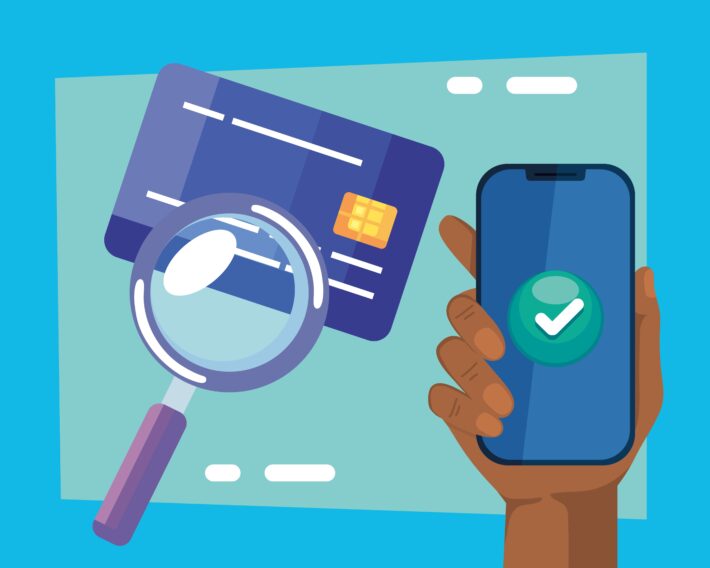Eidv Solutions Building Trust In The Online Sphere

In the contemporary digital landscape, characterized by the increasing prevalence of online transactions and engagements, the establishment of trust assumes paramount importance. The question of how trust can be cultivated within the online domain is a focal point of this discourse, with particular attention directed towards EIDV solution building trust and its function in engendering trust within digital spaces.
Through an examination of robust authentication mechanisms and transparent data protocols, a diverse array of strategies will be explored for fortifying trust in the virtual realm.
Explore the utility of EIDV in solidifying user identities, ensuring the security of data, and augmenting the overall quality of online interactions.
Acquaint yourself with the advantages offered by EIDV solutions, encompassing enhancements in customer confidence, mitigation of fraudulent activities, and alignment with regulatory requirements.
What is EIDV?
Electronic Identity Verification (EIDV) Solutions refer to methods and technologies utilized for the authentication of digital identities of individuals or entities in the online environment, ensuring their claimed identity accuracy and legitimacy.
These solutions operate by implementing a variety of verification methods, including biometric authentication, document verification, and knowledge-based authentication. The significance of EIDV solutions in the digital realm is paramount, as they play a crucial role in combatting identity theft, fraudulent activities, and ensuring the security of online transactions.
Organizations spanning different sectors depend on EIDV solutions to authenticate customer identities during account establishment, financial transactions, and access to sensitive data. Prominent entities in finance, healthcare, e-commerce, and online services sectors leverage EIDV solutions to fortify security measures and provide a seamless user experience.
Why is Building Trust Important in the Online Sphere?
Establishing trust in the online arena is crucial as it serves to bolster user confidence in digital interactions, facilitate secure transactions, cultivate a reputable online presence, and mitigate the risks associated with fraudulent activities.
When users perceive a website or online platform as being reliable, they are more inclined to engage with its content, conduct transactions, and divulge personal information. This trust contributes to fostering a favorable online image for businesses, leading to heightened customer loyalty and positive referrals.
Trust stands as a cornerstone for successful e-commerce endeavors, instilling a sense of security in consumers that encourages repeat business and word-of-mouth endorsements. Maintaining a high standard of online trustworthiness is imperative in the contemporary digital landscape to excel in a fiercely competitive market.
What are the Solutions for Building Trust in the Online Sphere?
There exist a variety of solutions for establishing trust in the online domain, spanning from the implementation of comprehensive trust-building strategies and the establishment of a secure online environment to the utilization of advanced identity verification services and adherence to stringent data privacy and cybersecurity protocols.
1. Strong Authentication Methods
Robust authentication methods play a crucial role in ensuring user verification and secure authentication within the digital landscape. These methods transcend basic password protection and encompass biometric authentication, multi-factor authentication, and security keys.
Biometric authentication validates identity through unique characteristics like fingerprints or facial recognition. Multi-factor authentication necessitates users to provide multiple forms of verification, such as a password coupled with a code sent to their mobile device. Security keys, on the other hand, are physical devices utilized for authentication, introducing an additional layer of security.
By integrating these robust authentication methods, the process of identity authentication is strengthened, safeguarding sensitive information against unauthorized access.
2. Transparent Data Collection and Usage Policies
Clear and transparent data collection and usage policies are essential for maintaining data privacy and protecting user data, thereby fostering trust between users and service providers.
When users are provided with detailed information on how their data is collected, stored, and used, they are more likely to feel at ease sharing their information with a service provider. Transparent data policies not only improve user trust but also lay a solid groundwork for data security.
By openly disclosing how data is managed and safeguarded, companies can showcase their dedication to upholding user privacy and protecting sensitive information. Trust signals, such as explicit privacy statements and robust data encryption practices, further bolster this commitment, instilling a sense of dependability and credibility in the online realm.
3. Secure Communication Channels
Establishing secure communication channels is essential in creating a safe online environment and guaranteeing the security of data transactions. These channels employ encryption techniques to safeguard sensitive information from unauthorized access or interception, incorporating technologies such as virtual private networks (VPNs), secure sockets layer (SSL), and secure hypertext transfer protocol (HTTPS).
Virtual private networks (VPNs) ensure data encryption prior to transmission, restricting access solely to authorized entities. SSL secures data exchanged between web servers and browsers, shielding it from potential threats. Similarly, websites implementing HTTPS encrypt data shared between users and the site, heightening overall security measures.
By integrating these secure communication channels, organizations can cultivate trust with their clientele and uphold the integrity of their data assets.
4. Reliable Customer Reviews and Ratings
Dependable customer reviews and ratings play a vital role in fostering customer confidence and cultivating a reputable online presence.
The voluntary sharing of customer feedback serves as a means of validating trust and contributes substantially to bolstering a business’s credibility. Positive reviews serve as social evidence, providing assurance to prospective customers regarding the quality of products or services offered.
Conversely, negative feedback offers valuable insights for enhancement and exhibits transparency in the manner in which a company addresses criticism. This iterative process of feedback and corresponding actions is pivotal in molding a company’s online standing and reinforcing its reliability in the perception of consumers.
5. Verified Identities and Credentials
Established identities and credentials play a fundamental role in identity verification procedures, guaranteeing the provision of dependable verification services and identity validation.
Verified identities and credentials are essential not just for individuals, but also for businesses seeking to foster trust and credibility. Through the utilization of trustworthy verification services, companies can strengthen their security protocols and shield themselves from potential risks linked to identity fraud.
A seamless verification procedure offers reassurance to all parties involved, ensuring that transactions and interactions are carried out securely and effectively. Given the increasing significance of protecting digital information, the necessity for robust identity verification techniques is more critical than ever.
How Can EIDV Help in Building Trust?
EIDV Solutions are integral in establishing trust through the implementation of strategies that foster trust, secure identity verification, and facilitate reliable identity verification processes, ultimately enhancing the establishment of trust online.
1. Establishing User Identities
Establishing user identities through reliable identity verification processes is crucial for upholding digital identity and ensuring secure identity verification.
User identity verification methods typically combine elements of factors, including something the user knows (such as a password), something the user has (such as a phone or smart card), or something the user is (such as biometric data).
The importance of digital identity stems from its pivotal role in online security, facilitating user access to services, conducting transactions, and engaging in interactions within a trusted digital environment.
Attaining secure identity verification necessitates the implementation of robust systems that safeguard personal data, authenticate user legitimacy, and mitigate unauthorized access.
2. Ensuring Data Privacy and Security
Ensuring data privacy and security is of utmost importance for maintaining user trust and implementing secure data protection measures.
Organizations must prioritize data privacy to safeguard sensitive information from unauthorized access and potential breaches. The implementation of robust data security measures, including encryption, authentication protocols, and regular security audits, plays a crucial role in preserving data integrity.
By adhering to data protection regulations such as GDPR and HIPAA, businesses can mitigate legal consequences and establish a solid reputation for upholding user privacy. Consistent employee training on secure data handling practices further bolsters the overall security framework, fostering a culture of data protection awareness within the organization.
3. Verifying Customer Reviews and Ratings
The verification of customer reviews and ratings is crucial for establishing credibility and upholding a favorable online reputation. It is essential to implement a structured procedure for review verification to validate the genuineness and dependability of the feedback provided by customers. Through the meticulous cross-referencing of details within reviews with actual customer experiences, organizations can pinpoint and rectify any deceptive or counterfeit reviews.
This verification process serves to not only bolster trust among prospective customers but also contributes to the efficacy of verification mechanisms designed to combat illicit activities within the online review landscape. Ultimately, review verification plays a pivotal role in maintaining the integrity of online platforms and cultivating a distinguished brand image.
4. Facilitating Secure Communication
Ensuring secure communication is essential to safeguard online safety and uphold a secure digital environment for reliable identity verification.
Through the implementation of encryption methodologies, secure communication channels guarantee that confidential data exchanged over the internet remains shielded from unauthorized interception. Trusted identity verification procedures are pivotal in validating the identities of individuals participating in online engagements, thereby minimizing the occurrence of fraudulent behaviors. The incorporation of secure communication protocols not only serves to protect personal information but also cultivates a culture of trust amongst users, thereby enhancing the overall safety and dependability of the online sphere.
What Are the Benefits of EIDV Solutions?
EIDV Solutions provide a multitude of advantages, such as:
- Enhanced customer trust and loyalty
- Robust fraud prevention and identity protection protocols
- Adherence to regulations and standards
- An improved user experience
1. Improved Customer Trust and Loyalty
Enhanced customer trust and loyalty are fundamental outcomes resulting from the implementation of trust-building techniques and the cultivation of online trust.
Customers place significant importance on trust when engaging with businesses. Through the utilization of trust-building strategies, such as transparent communication, maintaining high-quality products or services, and ensuring data security, organizations can establish a robust foundation of trust.
This trust not only aids in the retention of existing customers but also serves to attract new ones. When customers perceive a brand as reliable and credible, they are more inclined to exhibit loyalty and advocate for the business.
Ultimately, this cycle of trust and loyalty contributes to a positive user experience and fortifies the overall reputation of the enterprise.
2. Reduced Fraud and Identity Theft
The utilization of robust fraud prevention, identity protection, and fraud detection measures offers significant advantages in the reduction of fraud and identity theft.
These measures play a pivotal role in the protection of sensitive information and financial assets belonging to individuals and entities. Through the deployment of advanced encryption technologies, multi-factor authentication systems, and real-time monitoring tools, organizations can effectively mitigate the risks associated with fraudulent activities.
Continuous training programs for staff members on security protocols and routine security audits assist in the identification of vulnerabilities and the fortification of defense mechanisms against potential cyber threats. The cohesive integration of fraud prevention, identity protection, and fraud detection not only bolsters risk management methodologies but also cultivates customer confidence and loyalty.
3. Compliance with Regulations and Standards
Adherence to regulations and standards is essential for upholding data privacy and ensuring secure identity verification.
Organizations that comply with these regulations are not merely avoiding potential fines or penalties; they are also safeguarding sensitive personal information from unauthorized access. Data privacy is a fundamental right that must be safeguarded, particularly in light of the growing threats posed by data breaches and cybercrimes.
Additionally, by implementing secure identity verification practices, organizations can restrict access to confidential data to authorized individuals only, thereby mitigating the risks associated with identity theft and fraud.
The commitment to compliance, data privacy, and secure identity verification is a collective responsibility that yields benefits for both companies and individuals.
4. Enhanced User Experience
The enhancement of user experience is a direct consequence of establishing digital trust and maintaining a secure online environment that enhances user confidence.
When users perceive a sense of security while navigating websites or engaging in online transactions, they are more likely to interact with the platform for extended durations and revisit it. This feeling of trust not only nurtures a favorable user experience but also motivates individuals to share personal information or make purchases without reluctance. Additionally, an online environment with robust security safeguards users against potential risks such as data breaches and cyber attacks, further reinforcing their trust in the platform. Prioritizing digital trust and security lays a solid groundwork for a smooth and gratifying user experience.
Frequently Asked Questions
What is EIDV and how does it help in building trust in the online sphere?
EIDV stands for Electronic Identity Verification and it is a process of verifying the identity of an individual or organization in the digital space. Additionally, this solution helps in building trust by ensuring that the online entities are who they claim to be, thus reducing the risk of fraud and identity theft.
Why is building trust important in the online sphere?
In the digital world, where most transactions and interactions happen online, trust is essential to ensure the security and privacy of personal and sensitive information. It also helps in creating a safe and reliable environment for businesses to operate and for individuals to engage in online activities without fear of scams or fraud.
How does EIDV solutions work?
EIDV solutions use a combination of methods such as document verification, biometric authentication, and database checks to verify the identity of an individual or organization. Additionally, this process involves comparing the information provided by the user with trusted and reliable sources to ensure the accuracy of the identity.
Who can benefit from EIDV solutions?
EIDV solutions can benefit a wide range of industries and organizations, including financial institutions, e-commerce companies, government agencies, and healthcare providers. It can also be useful for individuals who want to secure their online accounts and protect their personal information.
Are EIDV solutions compliant with data privacy regulations?
Yes, EIDV solutions are designed to comply with data privacy regulations such as GDPR and HIPAA. Additionally, these solutions only collect and store necessary personal information and have strict security measures in place to protect the data from unauthorized access or misuse.
How can businesses implement EIDV solutions?
Businesses can implement EIDV solutions through a third-party provider that offers this service. They can also integrate EIDV APIs into their existing systems or use a standalone EIDV software. Additionally, it is important to choose a reliable and secure provider to ensure the effectiveness of the solution.



